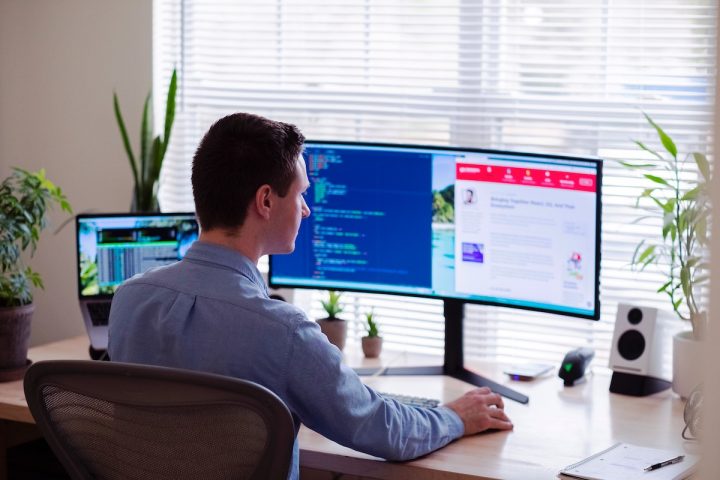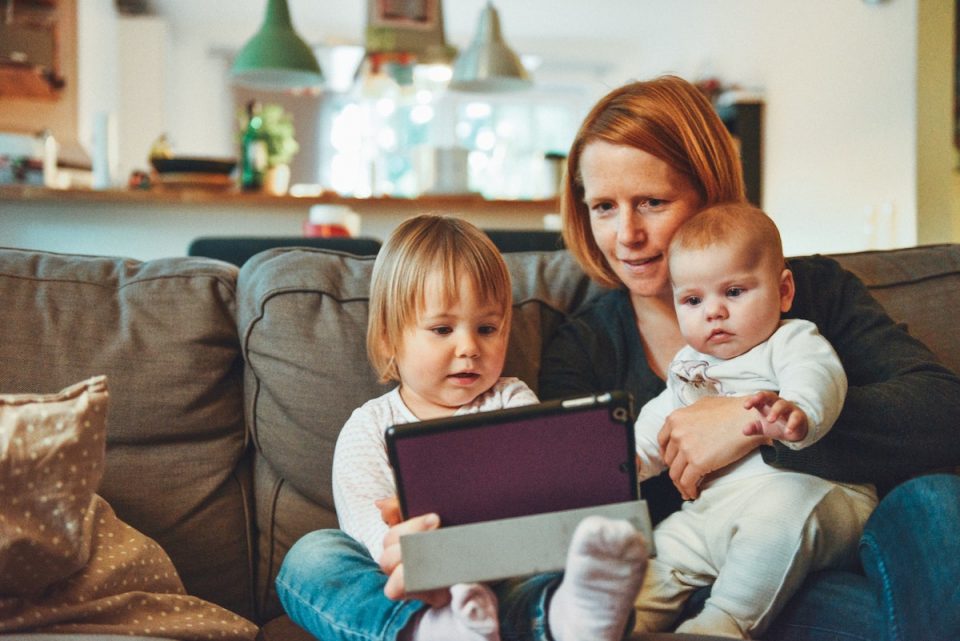Working from Home: The Importance of Routine

Together, we’re keeping daily life alive.
May 6, 2020
The New Normal at the Office: Masks & Social Distancing
May 14, 2020
Theologian and writer Mark Vernon points out that anxiety and agitation is more widespread in a time of COVID-19, even if one is not directly affected – simply because the customary distractions of life have vanished.
Vernon says, “We’re being thrown onto ourselves, and that is unsettling. As Franz Kafka put it: ‘It’s often better to be in chains than to be free’.”
He suggests that establishing a routine is one way to make the “free” time that many of us are finding ourselves trying to fill a less unsettling and anxiety-inducing experience.
The risk of routine
This might seem an unlikely solution. We’ve come to associate “routine” with “boring”.
Writing in the conversation, Nick Chater, Professor of Behavioural Science, Warwick Business School, admits, “Too much routine could presumably make us locked into rigid patterns of thinking and behavior from which there will be no escape. Indeed, some clinical disorders seem to have exactly this character: people with obsessive-compulsive disorder, for example, may find themselves continually checking doors, washing their hands, or cleaning and tidying. But mostly there is an opposing psychological force that successfully breaks us out of such loops: too much routine becomes crushingly boring.”
Why have a routine?
Most parents of multiples will wax lyrical about the necessity of routine. Getting a new-born to sleep is a difficult challenge at the best of times. Trying to manage it with multiple new-borns at the same time demands a routine.
So, establishing a routine can help you achieve your objectives more easily.
And, perhaps more importantly in this era of WFH and the furlough, routine can bring structure to an otherwise frighteningly unbounded day.
How to do routine in a time of COVID-19
To help us all deal with the emotional and psychological stress of lockdown, the World Health Organisation suggests that we “keep regular routines and schedules as much as possible or help create new ones in a new environment, including regular exercising, cleaning, daily chores, singing, painting or other activities.” It also advises people to remain in regular contact with loved ones via telephone, e-mail, social media and/or video conference.
The WHO guidance goes on to suggest that during times of stress, it is important to pay attention to your own needs and feelings: “Engage in healthy activities that you enjoy and find relaxing. Exercise regularly, keep regular sleep routines and eat healthy food.”
The need for routine for children
Keeping to a routine is even more important if you have children under lockdown at home with you too.
In its tips for surviving the lockdown, UNICEF advises: “Make a schedule for you and your children that has time for structured activities as well as free time. This can help children feel more secure and better behaved. Children or teenagers can help plan the routine for the day – like making a school timetable. Children will follow this better if they help to make it. Include exercise in each day – this helps with stress and kids with lots of energy at home.”
The celebrity routine
Some routines are more grueling than others.
It is said that German composer Ludwig van Beethoven began his day by counting out precisely 60 beans with which to make his morning cup of coffee.
Whereas former US president Barack Obama is known to eschew coffee in the morning – he is said to prefer to start his day with green tea, orange juice or water, and a bit of strength training or cardio.
Meanwhile, former Friends star Jennifer Aniston claims to wake up at 4.30 am to imbibe hot water with lemon before meditating for 20 minutes.
The award for ultimate celebrity routine, however, has to go to Mark Wahlberg. He posted an itinerary on Instagram that included waking at 2.30 am for prayers, followed by breakfast 3.15 am and a 95-minute workout, squeezing in golf, cryo-chamber recovery, and collecting his kids from school, before bedtime of 7.30 pm in order to ensure his requisite 7 hours of sleep.
The Royal routine
By contrast, the routine of Princess Margaret, the British Queen Elizabeth II’s late sister, was an altogether more leisurely affair.
In Ma’am Darling, biographer Craig Brown describes a routine that began around 9 am with breakfast in bed, “followed by two hours in bed listening to the radio, reading the newspapers (which she invariably left scattered over the floor) and chain-smoking.”
At 11 am she’d relax in the bath for an hour before dressing. Then she would enjoy a 12.30 pm “vodka pick-me-up” on the way to an informal four-course lunch with the Queen Mother at one.
Finding a healthy balance
Mark Vernon points out that routine is an essential feature of a retreat and proposes that we think about lockdown in the same way.
He says, “it’s unlike the pressure of usual life, to get up, to get out, to get somewhere, to get back from somewhere, to sort someone or something out. Instead, it’s a routine that creates space. It holds and protects the newfound freedom.”
This is the ideal type of routine: one that provides reassurance through familiarity and structure without encroaching on the benefits of freedom and plays that our new existence offers.
Vernon says, “A good routine is containing not crowding. Monasteries understand how it works. Something happens roughly every 2 hours. … This kind of routine is wonderful. It is creative. It exists to preserve time rather than fill up the time.”
He suggests, “Something similar might be adopted in the next few weeks. A coffee break at 11, with the emphasis on the ‘break’. A step outside to watch the great-tits or blackbirds busy with spring. A pause at three to send a message or check the family WhatsApp.
The pattern will also help you stay sane. And this is really important, not just because you don’t want to feel stir-crazy, but because keeping a mind about what’s going on is key to benefiting from the freedom of a retreat.”



